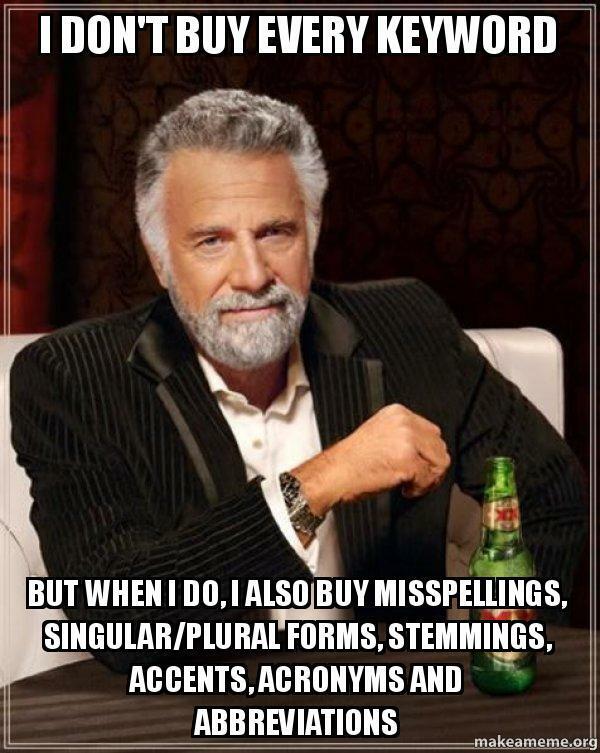
Holy smokes! Google has today effectively killed off both the Exact and Phrase keyword match types in AdWords!
While the keyword match types will still exist, starting in September, AdWords is redefining the definition of how keywords set to phrase and exact keyword match type will trigger search ads by applying close variant keyword matching – meaning your keywords will also trigger for misspellings, singular/plural forms, stemmings, accents, acronyms and abbreviations of the keywords that you specify.
Close variant keyword match was introduced in 2012, and was already the default option when using exact match and phrase match – however previously you could opt out of it. Going forward, this is no longer the case. Here’s everything you need to know about this keyword match type shake-up!
Who is Impacted by The Change?
At WordStream, we estimate that the change is a non-issue for approximately 97% of Google AdWords advertisers that didn’t opt out of close variant keyword match type option and who didn’t employ keyword “match type trap” optimization strategies.
However the ~3% who were using exact and phrase match the old fashioned way will most certainly be impacted by the change. And for the record, we see no reason for why they had to remove an optional feature.
What Was The Benefit of Previously Opting Out of Close Variant Keyword Matching?
The use of classic phrase and exact match offered greater precision and control over exactly which search queries triggered your ads. At WordStream we’ve found that shaping PPC traffic using these more precise match types almost always improved ROI, typically in the range of low double digits.
Was There Any Downside of Using Phrase & Exact Match
Yes. The increased control and ROI came at a cost of dramatically increased account management complexity.
For example, an account with 10 million keywords would typically have consisted of around 1 million core keywords and 9 million variations of those same keywords. This resulted in many times more account artifacts which in turn created account inertia that made it harder be agile in other ways. For example, ad copy and landing page optimization was much harder because there were so many more ad groups to deal with, etc.
This was unfortunate because ad copy and landing page optimization activities provide far greater potential upside. For example, the top 10% of landing pages convert 3-5x higher than the median landing page, and the top 1% of ad text generates 6x more clicks.
Why is Google Redefining Phrase and Exact Match?
I have no idea. This isn’t the first time Google has deprecated functionality, for example, last year they retired Device Targeting. In both cases though, Google retired targeting features that if used, resulted in substantially more complex account structure.
Beyond that, the concept of exact match is around 15 years old. Today we’re moving towards a “keywordless” future of search where organic search algorithms like Hummingbird will show you search results for content that doesn’t even include the keywords you searched on, and Google Shopping ads don’t use any keywords at all to target ads. As a result, I’d expect to see more of this “match type consolidation” in the near future.
Ultimately it’s a Google AdWords world. We’re just living in it.
What are The Benefits of Close Variant Keyword Matching?
- Reduced account complexity by means of fewer keywords
- Expanded reach by being able to capture more long tail keyword searches that would have otherwise been impossible to target due to “low search volume”. It was impossible to come up with all possible keyword variations for a niche.
Are There Any Benefits of Forcing The Use of Close Variant Keyword Matching?
No. Except that perhaps it forces search marketers to think more about more SEM strategy and more leveraged optimization activities like Conversion Rate Optimization and Ad Copy Optimization rather than mindless (and endless) keyword expansion.
What are your thoughts about the change in Phrase and Exact Match?
Have your say in the comments!







